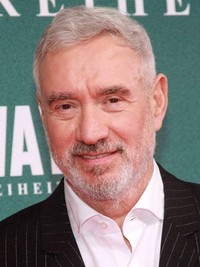Roland Emmerich

Though he was raised on a steady diet of independent-minded German filmmakers like Rainer Werner Fassbinder and Wim Wenders, director Roland Emmerich aspired early in his career to make blockbuster Hollywood movies. After making a name for himself by helming "The Noah's Ark Principle" (1981), the most expensive student film ever made in Germany, Emmerich crossed the Atlantic Ocean to make mainstream studio films. His first, "Universal Soldier" (1992), was an unexpected hit, which paved the way for him to direct his pet project, "Stargate" (1994). Along with writing and producing partner, Dean Devlin, Emmerich established himself as a resourceful sci-fi specialist who earned a reputation for meticulous preparation and remarkable cost-efficiency. Emmerich launched himself to the top of the Hollywood food chain with "Independence Day" (1996), a big, loud, sci-fi film that was long on computer-generated special effects but short on narrative and character development. Despite the campy, clichéd storyline and action sequences, the film made a name for the director. He went on to direct several big budget mega-disaster flicks like "Godzilla" (1998), "The Day After Tomorrow" (2004) and "10,000 B.C." (2008), all of which were panned by critics, lambasted by experts for lack of authenticity and gobbled up by audiences clamoring to see the destruction of the world through variously wild scenarios. By the time he directed "2012" (2009), Emmerich was by far one of the few directors capable of consistently making critically-derided movies that nonetheless made enormous amounts of money.